Search Results for Tag: Argentina
On the need for media literacy and how to promote it
The Global Media Forum started on Monday with plenary session 1: “Rating vs. Quality: Media caught between market pressure and the mission to educate.” It was a very engaging discussion, and there were representatives from the US, Germany, Russia and South Africa. Above all, participant Trevor Ncube made a particular impression on me. He is deputy chairman of M&G Media Ltd in South Africa and chairman of Alpha Media Holdings in Zimbabwe, and he started by saying that when the media neglects Africans, it is generating misinformation.
![]() read more
read more
Argentina’s social dialogue heading the wrong way
This is my last entry before we will all be writing from the Global Media Forum in Bonn (Germany). I was shocked to hear that Hellgurd’s entries will not be published any more due to the severe threats he received. It made me go back to the very beginning of the project and look at Hellgurd’s video presentation. He speaks of music as a universal language that can bridge the differences among people.
![]() read more
read more
Empower the student to learn
At the beginning of the week I was talking to my coworker Patricia about how education is approached in our country. She coordinates a regional program aiming to strengthen technical education in different fields, like math, science, industry-applied technology and school management. The program’s various groups in different regions of the country do not work directly with students; they work with teachers and school principals. The aim is to train educators and hence improve technical education by setting higher standards.
![]() read more
read more
Teachers: taking action at the root
In March this year, there was a huge strike from the teachers’ union in which they demanded a salary raise. Every year, the timing works out almost identically: the academic year in Argentina starts in March, and some three weeks to a month before that, negotiations with the union take place. There was the threat that classes would not actually start because no agreement had been reached. Teachers in Argentina have some of the lowest wages in society, so it’s very common that they have to overwork themselves to make a decent living.
![]() read more
read more
Innovative approaches to community activism
Apart from my work at the NGO, I have time to freelance as a journalist from time to time. Last week I interviewed Silvio, the director of Los Grobo Foundation. We talked about the role of NGOs in society, the different actors in a community and how to present them to benefit social development. I thought it was worth sharing some of his ideas here!
![]() read more
read more
Facing social problems with action (Part 2)
Last time, I wrote about a co-worker and activist named Juan. Now I want to turn to my life-long friend Victoria. As I said before, she couldn’t be more different than Juan: She disagrees with the political party in charge of the administration, and sees no point in political action. She is, however, very much involved with her church community, and, in particular, with Manos a la Obra (which means ‘Shoulders to the wheel!’), a project that was started by a college preaching group in Mendoza (a province in the west of Argentina). Since 2008, it has also been held in San Isidro, the neighborhood in the Greater Buenos Aires Area where Vicky lives. The movement draws inspiration from the Christian faith, and it tries to alleviate the effects of extreme poverty.
![]() read more
read more
Facing social problems with action (Part 1)
As I’ve described before, people get involved in different ways to take action and face emergency situations, and education in the most humble communities in Argentina is definitely one such situation.
When I think of civil action, two people come to my mind: my coworker, Juan; and my life long friend, Victoria. I’ll describe each in different entries. They couldn’t be more different from one another. And yet, their concerns lead them both to advocate for more social inclusion.
![]() read more
read more
María on Skype: “Laws are essential for social change”
Building a learning community amid harsh conditions
After Barrio Mosconi, the circus workshop moved to El Dique, another slum in the district of Ensenada. Having set foot in both, I could tell the difference between them was that the latter has worse living conditions: informal housing and dirt roads instead of paved streets. Also, as Liliana put it very well during the meeting we had: El Dique has a bigger population, so it is able to have a Centro de Integración Comunitario. The proper translation would be “Community Integration Center,” and it is a special building provided by the government, where there is space for health initiatives as well as social development, arts, education and sports programs. This is where the circus classes took place.
![]() read more
read more
Argentina’s alternative learning spaces
I read Pavel’s entry, and I was thinking about how extracurricular learning environments work here. Clubs obviously exist, but access to them is limited by how much money families have. Pavel suggests in his entry that people tend to look for alternatives outside of the educational model because it hasn’t kept up with the world’s development. For poverty stricken communities in my country, it’s the opposite: kids are falling out of the educational system because they can’t even keep up with its basic demands. That’s due to the fact that their needs are unmet.
![]() read more
read more







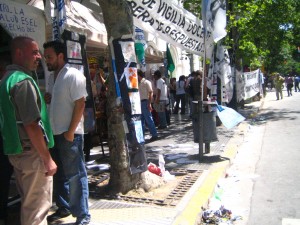
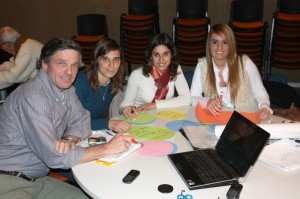
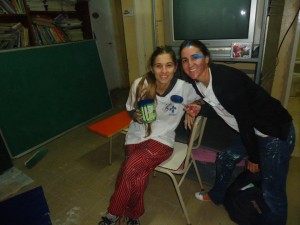
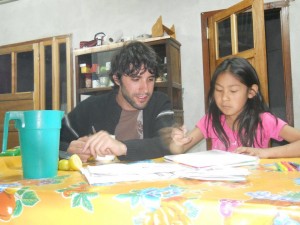
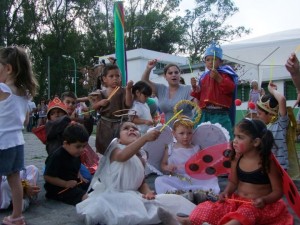
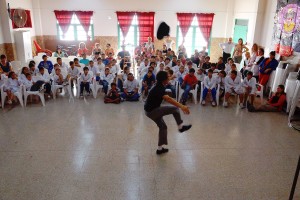




Feedback